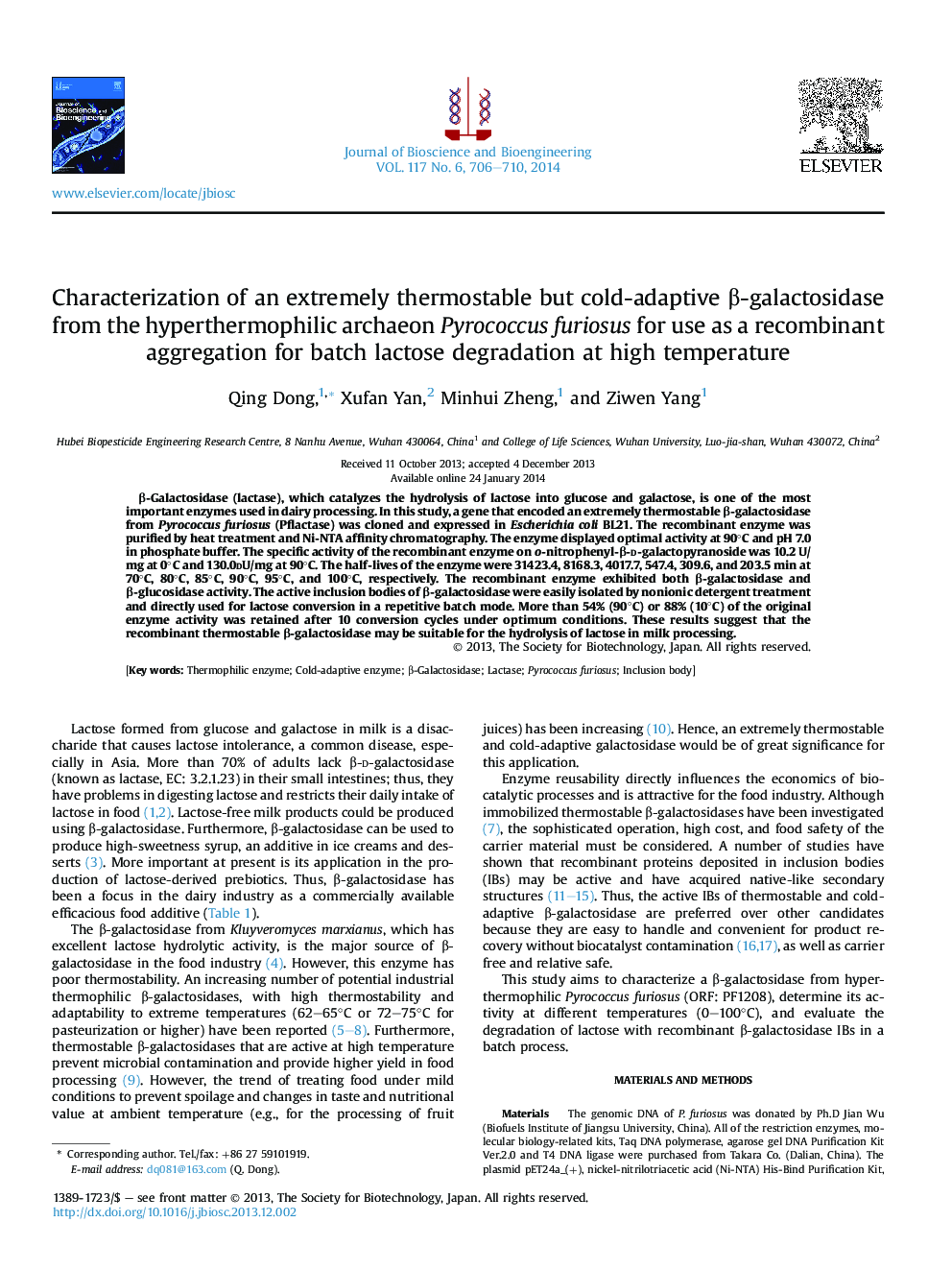| کد مقاله | کد نشریه | سال انتشار | مقاله انگلیسی | نسخه تمام متن |
|---|---|---|---|---|
| 20641 | 43184 | 2014 | 5 صفحه PDF | دانلود رایگان |

β-Galactosidase (lactase), which catalyzes the hydrolysis of lactose into glucose and galactose, is one of the most important enzymes used in dairy processing. In this study, a gene that encoded an extremely thermostable β-galactosidase from Pyrococcus furiosus (Pflactase) was cloned and expressed in Escherichia coli BL21. The recombinant enzyme was purified by heat treatment and Ni-NTA affinity chromatography. The enzyme displayed optimal activity at 90°C and pH 7.0 in phosphate buffer. The specific activity of the recombinant enzyme on o-nitrophenyl-β-d-galactopyranoside was 10.2 U/mg at 0°C and 130.0dU/mg at 90°C. The half-lives of the enzyme were 31423.4, 8168.3, 4017.7, 547.4, 309.6, and 203.5 min at 70°C, 80°C, 85°C, 90°C, 95°C, and 100°C, respectively. The recombinant enzyme exhibited both β-galactosidase and β-glucosidase activity. The active inclusion bodies of β-galactosidase were easily isolated by nonionic detergent treatment and directly used for lactose conversion in a repetitive batch mode. More than 54% (90°C) or 88% (10°C) of the original enzyme activity was retained after 10 conversion cycles under optimum conditions. These results suggest that the recombinant thermostable β-galactosidase may be suitable for the hydrolysis of lactose in milk processing.
Journal: Journal of Bioscience and Bioengineering - Volume 117, Issue 6, June 2014, Pages 706–710